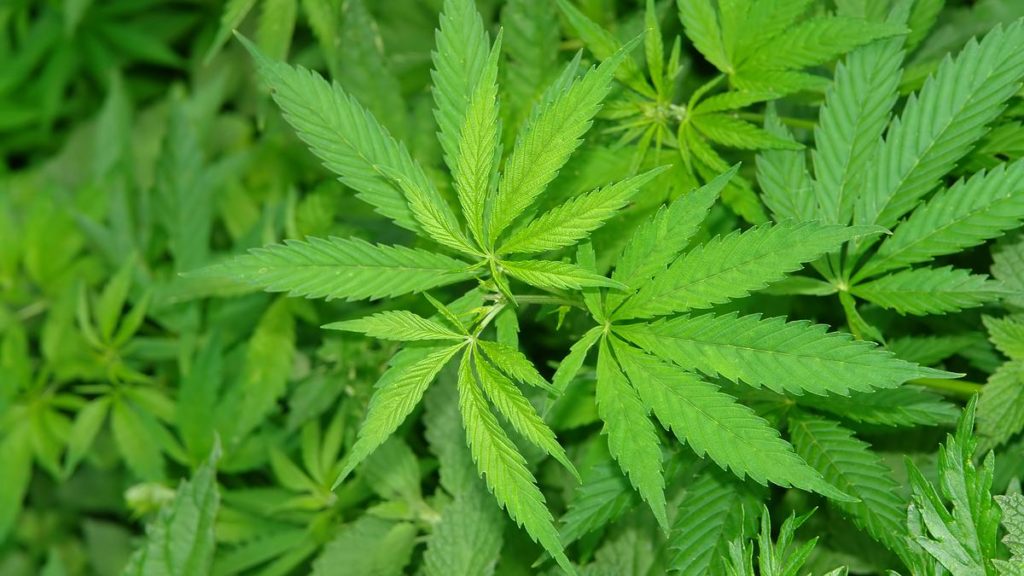The new year stands to bring significant changes to D.C.’s marijuana market, thanks to newly passed legislation that would open the door for illicit shops to secure licenses to, instead, legally sell medical cannabis — and for regulators to crack down on those that don’t.
It’s among the changes outlined in an amendment to the Medical Cannabis Amendment Act of 2022 introduced by D.C. Council Chairman Phil Mendelson, D-At large, and Councilmember Kenyan McDuffie, D-Ward 5. The D.C. Council unanimously approved the bill as amended on final reading Dec. 20, now requiring Mayor Muriel Bowser’s sign-off and that of Congress.
The amendment “provides unlicensed establishments with a real pathway to enter the market without having to face the immediate threat of enforcement,” McDuffie said Dec. 20. And while it’s unclear at this point how many shops would pursue the avenue to secure a medical license versus continuing to operate illegally — because the license brings its own set of restrictions — that pathway reflects the city’s ongoing efforts to expand and better regulate a market that’s not yet federally legal.
Perhaps most notably, the legislation would eliminate a cap on the number of licenses allowed in the city. In inviting unlicensed marijuana shops to enter the legal medical market, it would also allow them, as well as existing legal operators, to seek licenses for cultivation centers, and would create an appeal process for companies that aren’t granted licenses.
In doing so, the bill includes a 315-day “enforcement grace period” for establishments that apply for licenses, Mendelson said at last week’s council meeting. “It’s a safe harbor for those who apply; if you don’t apply, you don’t have a safe harbor.”
That’s a big deal in a market that, up to this point, has operated largely on a loophole. The District has seven licensed medical cannabis dispensaries, but other unlicensed businesses not-so-quietly gift marijuana — meaning a patron buys something like a water bottle and, with it, gets some “free” pot. The city’s licensed medical cannabis operators contend that activity hurts their business and also poses a danger to customers by distributing untested product. The latest legislation aims to address that within its power, which is limited by a congressional rider that prevents D.C. from enacting retail sales and regulating adult-use cannabis.
That’s because while the District’s medical cannabis program dates back to 2010 and city residents voted to support marijuana legalization back in 2014 under Initiative 71, congressional opposition has made the landscape tricky; today, adults can possess, share and grow only small amounts of cannabis, but cannot sell or publicly consume it.
“We all agree operating businesses in a gray, unregulated market is not what Initiative 71 had in mind, nor should unlicensed businesses be tolerated in any industry,” Councilmember Janeese Lewis George, D-Ward 4, said at the council meeting in support of bill’s amendments. “We also know the promulgation of unlicensed shops has placed a severe burden on our medical dispensaries who are operating aboveboard and very literally paying a cost for it.”
Councilmembers expressed support for the path to full legalization, which would make those formerly under-the-radar shops “fully in the free market and competing and pushing each other,” Councilmember Robert White, D-At large, said at the meeting. “I think folks whose products have trace elements — they’re going to fall off, because there’s a lot of competition.”
Industry players agree that lifting the cap on licenses also would help ensure access to safer products. “The removal of the plant number limit also allows medical cannabis patients to have greater control over quality and strain choice,” said Anthony Dutcher, chief marketing officer of D.C.’s Veriheal.
But that change would likely be “closely watched by Congress,” said Linda Mercado Greene, owner and CEO of D.C. medical marijuana dispensary Anacostia Organics, “perhaps negating a lot of our federal funding and perhaps taking us back to Home Rule days, especially under a Republican Congress.”
The legislation would also allow returning citizens to own medical cannabis facilities, among other social equity provisions. And, importantly for the city’s existing operators, it would change tax law: Up to this point, D.C.’s medical cannabis businesses have had to pay taxes to both the District’s Office of Tax and Revenue and the Internal Revenue Service at the federal level — anywhere from 65% to 85% of gross revenue, Green said. But going forward, “we will be able to deduct business expenses just as any other D.C. licensed business,” she said, adding: “This is a tremendous win for us, the legal operators.”
It’s not all good news for the existing businesses, she said. The bill creates licenses for internet retailers, which could sell and deliver product to qualifying patients. That, Green said, “could simply cannibalize the market if they proliferate too quickly, as well as eliminate the brick-and-mortar legal cannabis retail stores.”
But it would also mean that “customers can access delivery services, which is great for medical patients who are homebound due to disability or other medical conditions,” Dutcher said. And because the bill would also enable patients to self-certify, he said, meaning they wouldn’t need a doctor’s note to access medical product, it “may allow D.C.’s medical cannabis program to expand significantly.”
H/T: www.bizjournals.com



